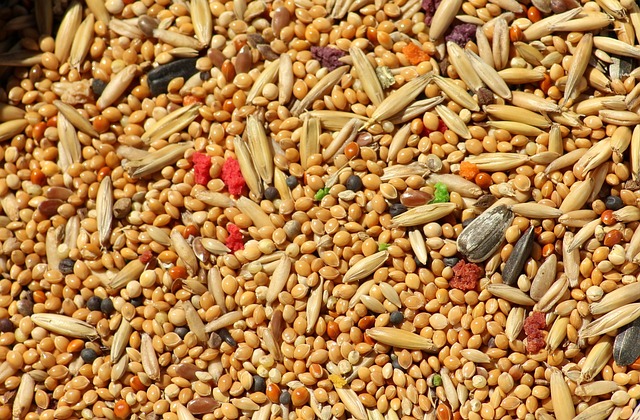The Health of an individual is influenced by nutrition throughout their lives. Any person’s nourishment really begins in the mother’s womb. The nutritional stages that a person experiences vary according on their age and degree of physical activity. But a person’s nutritional status affects them at every stage of life. hence the Nutrition For Different Life -Stages is different.
Nutrition throughout pregnancy can have an impact on the unborn child’s growth as well as the child’s later years. Likewise, poor dietary choices made throughout maturity might result in health issues later in life.
To maintain our physical and mental well-being, we require a variety of vitamins and minerals, carbohydrates, vital fatty acids, and necessary amino acids. Normal development and growth depend upon obtaining optimum nutrition and developing immunity against illnesses.
Up until now, the cornerstone of human life—growth and development—has been understood to include the health of both the mother and the child. This article will explain why nutrition for different life-stages is different a how it affects the entire life cycle.
Nutrition For Different Life-Stages: Nourishment throughout one’s life
The association between diet and health at various stages of the life cycle is known as nutrition during the life cycle. These phases are dependent on one another. Low birth weight babies are more likely to suffer from chronic illnesses and die young.
Poor nutrition and recurrent illnesses cause this kind of infant to be stunned by his rapid development during childhood. Physical ability and muscular growth decrease during adolescence. In the adult stage, this malnutrition cycle persists, and older individuals’ immunity is weakened as a result of inadequate dietary intake high in nutrients.
You May also like: Proteins
Importance of Nutrition For Different Life-Stages
Infancy
Infancy is first main stage in the Term Nutrition for different life-stages .Infants grow and develop in a quick and dynamic manner. Infants’ proper growth and development are influenced by a variety of variables, including diet, culture, and environment. Breast milk is considered a superfood for the first six months after a baby is born. Children at this age can eat energy-rich foods. meal may have added sugar and fat to make it more calorically dense.

Preschool children
An age group of 4 to 6 years is considered preschool. activities of preschoolers increase day by day. For this age group, diets high in energy, foods that develop muscle, and foods that are protective, including milk, fruits, Growing and developing in the right ways can result from eating the right foods. and vegetables, are advised.
Adolescent
Girls and boys aged 10 years to 19 years are called adolescents. This signifies the person’s second growth spurt in their whole life. During this period, hormonal and physical changes take place. Additionally, bone formation and maturation occurred quickly. Foods that are preventive, body-building, and nutritional are needed at this stage.
Pregnant and lactating women
pregnancy is the most important part of For “Nutrition For Different Life-Stages”. women who are pregnant or nursing at this stage, preserving health and productivity .pregnancy and lactation depend on a healthy diet. For this reason, a diet rich in nutrients are necessary, along with additional food for childrearing and raising.
Adult
Being physically active and healthy requires proper nutrition. This stage calls for diets that are high in protein, low in fat, and packed with nutrients.
Older people (more than 60)
nutrition for older people is extremely necessary in Nutrition For Different Life-Stages term .As people aged, their bodies and brains change quickly. Seniors also require higher doses of antioxidants, calcium, iron, and zinc. Therefore, during this period, a diet high in nutrients, minerals, and protein is necessary.

Global concerns related to diet which impact on Nutrition For Different Life -Stages
The main dietary issues that developed nations face are overconsumption of macronutrients, particularly sugar, protein, and saturated fat, and inadequate consumption of fiber and micronutrients, which are found in fruits, vegetables, whole grains, and legumes.
Overfed children and kids could acquire eating habits and possibly even metabolic traits that will affect them for the rest of their lives. Teenagers deal with a similar issue. Many teenagers consume more saturated fat than is advised. Excessive consumption of energy poses a specific concern for adults living in wealthy nations.
Malnutrition is a health issue in developing countries. Nutrition for different life-stages plays important role in such counties. Poverty and inequality prevent people from having access to the necessary quantity of nutrient-rich food. therefore Nutrition For Different Life -Stages can not full fill .
Although these nations’ nutritional issues are largely caused by poverty and high infection rates. People in such states frequently suffer from vitamin A insufficiency, iodine inadequacy, and protein malnutrition.
In Nutshell of: Nutrition For Different Life-Stages
Nutrition is life-long process. each stage of this cycle is very important as it impacts on next stages. A mother can give birth to a healthy child if she takes good care of her nutrition during her pregnancy. Infancy, preschool, adolescence, pregnancy and lactation, adulthood, and older age are different stages of the life cycle. Hence, it is important to fulfil the demand of Nutrition for different life-stages to achieve optimal and disease -free health.








